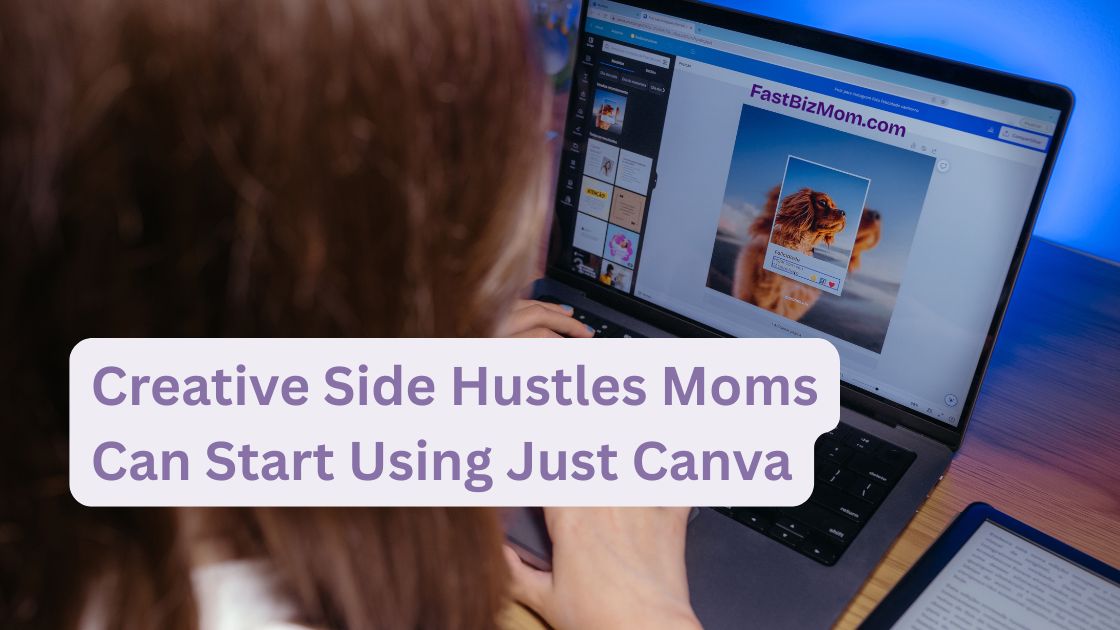Creativity + simplicity = a side hustle that actually works for busy moms. If you…

Is Beachbody An MLM?
If you happened to post on your social media earlier this month that your new year resolutions included living a healthier lifestyle, losing some weight, or finding a side hustle to bring in some extra money, chances are you got at least one inbox message from a long-lost acquaintance inviting you to join their Beachbody “team.” Beachbody touts itself as being a multifaceted wellness and fitness company that provides a supportive community, nutritional products and plans, and workout plans. It even welcomes you to make money off of the products while using them by getting other people to enroll (via Beachbody.com).
So what’s the problem? Well, you might have heard that Beachbody is an MLM (multilevel marketing company). According to Investopedia, an MLM is defined as a business model that “encourages existing members to promote and sell their offerings to other individuals and bring on new recruits into the business. Distributors are paid a percentage of their recruits’ sales. New recruits become the distributor’s network or downline and are, in turn, encouraged to make sales to earn money.” While many MLMs are technically legal, some of their practices boarder on pyramid schemes.
So, is Beachbody an MLM?
How Beachbody works
In short, yes. Beachbody is an MLM. While its consultants might describe it as “direct sales” and make a point that you might buy protein powder from a store, so why not buy it from a friend instead and help them earn a living, there’s an essential piece to the puzzle they are leaving out. A simple direct sales model is exactly that: someone sells products to you directly rather than going through a store or other channel. However, with an MLM, a major portion of the salespeople’s income does not come from sales of actual products or services; it comes from recruiting other people to sell under them, hence creating a pyramid-shaped system (via Traveling Jezebel).
The way many MLMs, like Beachbody, get away with what is pretty clearly a pyramid scheme on paper, is because they really are selling an actual product, so they can call themselves direct sales. But the ultimate goal of any Beachbody associate is to recruit as many people underneath them as possible so that they can make passive income off those peoples’ sales. This creates a situation in which the people at the bottom make very little if any money and only the people at the very top make a lot. In fact, statistically, only 25% of MLM sellers turn a profit at all, which means 75% do not make any money (via Fundera).
How To Tell If Your Friend Is Caught Up In An MLM Scheme
Your friends are acting… strange. Your neighbor keeps posting comments on Facebook like, “Ask me how I lost 10 pounds.” Your coworker, meanwhile, is talking nonstop about essential oils. And then there’s that chick you haven’t spoken to since high school — out of the blue, she asked you if you were ready to “change your life.” Sure, the pandemic has altered human behavior, but why are so many people you know speaking as if their brains were taken over by sales chatbots?
The likely culprit is they’ve got themselves sucked into a multi-level marketing (MLM) business, in which their success is based not only on selling products but also on referring new recruits to join their pyramids (via Social Media Week). Per the AARP, approximately 20 million Americans are involved in MLMs, and nearly half of them lose money rather than profiting from their efforts. These days, MLMs are using the coronavirus as an opportunity to step up their recruiting game — with record unemployment leaving people desperate for income and concerns about health offering wellness direct-sale brands a direct “in” to your wallet. “Just received a new batch of doTERRA On Gaurd essential oil, so I am ready for you Corona Virus,” one oils hawker posted on Facebook (via Vox).
So, how can you tell whether your friend has joined one of these schemes–or really does have a great new career, an exciting weight loss success story, or truly did recover from an illness thanks to lavender oil?
Signs that your friends are trying to rope you into their MLM
According to Medium, because MLMs rely on word-of-mouth marketing, your friends will likely approach you in a friendly, social way, perhaps asking about your life before launching into their success story about their health, the new product they discovered and fell in love with, or simply the news that they’ve become an entrepreneur. If you get caught up in this sales pitch, notice whether there are any starter fees or business licenses required to sell the products. If so, consider yourself warned: this means that recruiting you to join your friend’s downline is a major source of revenue for the business, perhaps more so than sales of the products themselves (via Vice).
But don’t feel any obligation to say yes. Just as you’re not obligated to buy a product that’s advertised to you on television or in a store, you should feel no qualms about saying no to your friend or even ignoring direct messages. In fact, if you don’t say no and buy a product or two, you can bet you’ll get an invite to join them downline (via The Every Girl). And getting yourself out of an MLM is a lot harder than getting yourself out of a sales pitch, since these organizations refer to their sales force as “family” and likely will pressure you to stay on the team, spending even more money to sharpen your own selling tools, as revealed by The Snapping Point.






